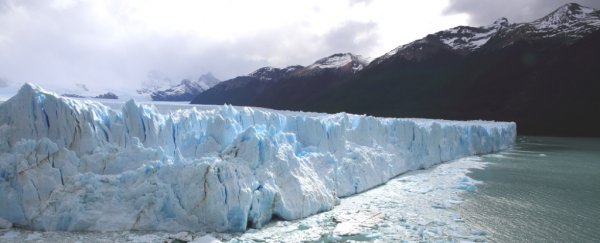One of Argentina's leading glaciologists is facing criminal charges in a controversial case that could set new standards over the legal liability of scientists for environmental pollution.
Argentinian geoscientist Ricardo Villalba stands accused of manipulating a national inventory of glaciers to exclude smaller glaciers from environmental protections, and thereby enabling repeated instances of cyanide pollution by the mining industry.
Villalba, the former director of the Argentinian Institute of Snow, Ice, and Environmental Research (IANIGLA), led the organisation from 2005 to 2015, during which time he oversaw the nation's first comprehensive survey of Argentina's expansive glacier network of glaciers.
The glacier inventory, which began in 2011, used satellite data to document every ice mass within Argentina with a minimum glacier size of 1 hectare (10,000 square metres, or about 2.5 acres).
According to Villalba and an international team of scientists who are supporting him in the case, that 1-hectare delineation is a scientific standard for these kinds of glacier measurements.
"The process of making that inventory wasn't unusual," glaciologist Bruce Raup from the University of Colorado in Boulder told Science.
"That size cutoff is standard practice."
Be that as it may, environmental activists from the community of San José de Jáchal in the country's north-west say the failure to catalogue smaller glaciers breached a 2010 law designed to protect all glaciated areas within Argentina, which provide many with drinking water.
And that water is not drinkable any more when glaciers get poisoned by pollutants from heavy industry – such as has happened at least twice due to cyanide spillages at the Veladero mine in the north-west of Argentina, near where people in San José de Jáchal live.
"The law did not distinguish glaciers by surface or size," lawyer Diego Seguí, who represents the activist group, the Asamblea Jachál No Se Toca, told Nature.
While the group's lawsuit did not specify Villalba by name – nor that of three former environment ministers who have also been indicted as part of the proceedings – under Argentinian law, criminal charges attach to individuals, not the organisations they represent.
It's not totally clear what the maximum penalty or sentence for the researcher and the others could be if they are found guilty, but for now Villalba has been ordered to remain in Argentina, and the seizure of his assets has been authorised to the value of 5 million pesos (US$290,000).
According to reports, the glaciologist is actually sympathetic to the environmental activists' cause as far as wanting to blame somebody for the repeated instances of glacier pollution – but nonetheless he maintains they've got the wrong guy.
"There was no intention to favour mining companies," Villalba told Science.
"No Argentinian institution has done more to safeguard and protect glaciers than IANIGLA."
It's worth noting several scientists are backing their colleague and giving evidence to support him, with an online petition striving to explain the complexities of glacial monitoring, and others taking to Twitter to voice their condemnation of a prominent scientist being blamed for a mining company's actions.
"Clearly there is no relationship between the actual mapping and the spill of cyanide," geographer Tom Veblen from the University of Colorado Boulder told Nature.
"Ricardo is being used as a scapegoat, without a doubt."
But that's not the way Argentina's criminal prosecutors currently sees things, meaning we're headed for a legal showdown that could set a new precedent for how criminally liable researchers are in Argentina for their work as scientists.
"This unbelievable story illustrates a lack of trust and growing defiance of the policymakers and general public toward scientific results," glaciologist Etienne Berthier from the French National Centre for Scientific Research told Science.
"This is dangerous."
